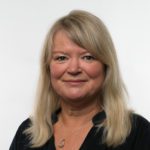About
Nofima is a leading food research institute that conducts research and development for the aquaculture industry, the fishing industry and the food industry.
Researching what matters most: food.
Food is important in so many ways. It is of course, fundamental to life. But food is also business. Food is about jobs and where people live. Food is culture.
Nofima has close ties to Norwegian food production. We are Norway’s leading food research institute and engage in applied research and development within the fields of aquaculture, fisheries and food.
Our research is industry-oriented and relevant, and the knowledge we generate is actively applied by our clients.
Sustainable food for everyone
Nofima´s vision
Our work is carried out in accordance with all research ethics guidelines. The client will be entitled to influence the research topic and questions, but not the results. The client may not require methodology choices which Nofima cannot justify.
Funding sources and other support of significance to the achievement of research must be known to those who contribute to the research.
Facts about Nofima
- 387 employees, of which 165 have a PhD
- 721 million NOK turnover (2023)
- 548 different projects (2023).
- Customers from 34 countries (2022).
Research is at the core of knowledge-based innovation
Who owns us?
The Norwegian state v/ Ministry of Trade, Industry and Fisheries
Ownership: 56,8%.
Read more about the owner in Brønnøysundregistrene.
The Foundation for agricultural food research
Ownership: 32,2%.
Read more about the owner in Brønnøysundregistrene.
Akvainvest Møre og Romsdal
Ownership: 10%.
Owned by Sunndal and Averøy municipality and Møre og Romsdal county municipality.
Read more about the owner in Brønnøysundregistrene.
Who finances our research?
The Norwegian state v/Ministry of Trade, Industry and Fisheries (NFD)
NFD is responsible for fisheries and aquaculture management, seafood safety, fish health and fish welfare, the framework conditions for seafood trade and market access for Norwegian seafood. NFD funds Nofima’s research infrastructure.
The Research council of Norway (NFR)
NFR is a research policy adviser for the government and the ministries which allocates NOK 10 Bn. annually for research and innovation. The Research Council’s mission is ensure that this funding goes to the best research and innovation projects. The organization is at the forefront in developing research of the highest quality and relevance.
The fishery and aquaculture research fund (FHF)
FHF manages the funding scheme for industrial research and development work within fisheries and aquaculture to contribute to sustainable value creation and growth in the industry.
The research funding for agriculture and food industry and partner companies (FFL/JA)
FFL/JA organization finances research and innovation for the entire value chain. The projects should cover key knowledge gaps and ensure good user involvement.
The European Union
HORIZON 2020 is the EU framework programme for research and innovation. Its goal is to ensure Europe produces world-class science, removes barriers to innovation and makes it easier for the public and private sectors to work together in delivering innovation.
Companies/public funding bodies
Management team
What is commissioned research?
The purpose of Nofima is to produce new knowledge that improves Norwegian food industries and moves them forward.
In order to be a socially beneficial provider of knowledge, we depend on good insight into the food industry’s issues, which is why you will often find our scientists working together with companies.
It is of great value to us when industry actors contribute as sources of information and discussion partners so as to ensure that research is relevant and useful.
Approximately 30 percent of Nofima’s research is commissioned by industry actors. All our research follows research ethics guidelines and we place emphasis on making our results available.
In order for the results of the research to be quickly adopted by the food industry or other stakeholders, they are often disseminated via the media or in lectures before they are scientifically published. This often applies to research that is funded by the public sector.
The Norwegian National Research Ethics Committees highlight four elements in the definition of commissioned research:
- Research financed mainly by clients as the external sources of funding. These may include projects funded by the Research Council of Norway, regional research funds, joint research programmes, companies or industry research funding such as FHF or FFL.
- The client determines the theme of the research to be conducted and the attendant research problems, but not the approach and the methods.
- The findings are expected to benefit the client and other user groups specified by the client or in the project description.
- The client retains certain rights to the use of the generated research results after project completion.
The Board
- Chair: Thomas Henning Farstad, managing director, Milarex
- Marianne Synnes Emblemsvåg (Deputy chair)
- Trond Vilhelm Lund
- Tine Annette Grytnes Laskerud, CEO Grytnes Entreprenør AS
- Edel Storelvmo
- Cathrine Finne Kure, Senior Scientist, Nofima AS
- Gøril Voldnes, Scientist, Nofima AS
- Bjørn Tore Rotabakk, Scientist, Nofima AS
Nomination committee
- Anne Marit Skulberg,
- Petter Haas Brubakk, Stiftelsen for Landbrukets Næringsmiddelforskning
- Randi Dyrnes, Akvainvest Møre og Romsdal
Files to download
- Gender Equality Plan (pdf)








